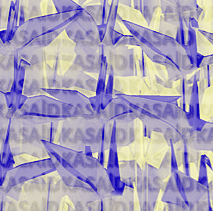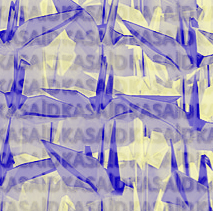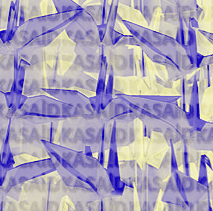For example, while one person might experience headaches and vomiting after just one drink, another might throw back whiskey gingers all night and wake up feeling tired but otherwise unscathed. Sleep apnea is a common sleep disorder in which breathing repeatedly stops and starts during sleep when the airways are partially or fully blocked. Alcohol relaxes upper airway muscles, increasing the likelihood of the airways collapsing and more sleep apnea episodes, leading to more sleep disruptions.
Though these suggestions may help you get through the night a bit more painlessly, they won’t reverse the impact alcohol has on sleep quality. The best way to protect sleep is to cut off your drinking earlier in the day or forgo drinking entirely. A newer study found that one dose of alcohol had no effect on the circadian rhythm in rodents. However, the researchers proposed that perhaps these effects on the circadian rhythm are only seen after several consecutive days of alcohol consumption. In support of the alcohol-melatonin connection, researchers have noticed that individuals suffering from severe alcohol withdrawal tend to have less pronounced melatonin levels and release. In the short term, these alterations to our sleep pattern can lead to a restless second half of the night.
These can happen during arousals from rapid eye movement (REM) sleep or non-rapid eye movement (NREM) sleep. It’s best to cut off drinking alcohol at least four hours before bedtime. This gives your liver time to break down the alcohol and might give your sleep a fighting chance.
Conroy suggested not becoming overly obsessive about avoiding alcohol at all costs — especially if you enjoy having a drink here and there. “After the body metabolizes the alcohol, the sedating effect wears off, which can contribute to middle-of-the-night awakenings,” Conroy said. Guy Meadows, a sleep researcher and co-founder of The Sleep School, an online platform offering science-based support around sleep, told Live Science that alcohol affects the four stages of sleep in different ways. Drinking to fall asleep regularly can build up a tolerance to alcohol, gradually lessening booze’s ability to help you drift off, according to the National Sleep Foundation. Besides just waking you up a lot, alcohol can disrupt your normal sleep patterns enough to create some longer-term issues you may need to address. Parasomnias Alcohol increases the amount of SWS in the first third of the night.
There’s a chance you’ll physically act out your dreams in your sleep, or even sleepwalk. CBTi is recommended as the best starting point for treating insomnia that has lasted more than four weeks (chronic insomnia). Unlike sleeping pills, CBTi helps you overcome the underlying causes of your sleep problems rather than just alleviating the symptoms.
How Alcohol Affects Your Sleep
Heavy drinking can make the sleep- and circadian rhythm-disrupting effects of alcohol worse. But even a regular, moderate routine of two to three drinks a day is enough to create sleep and performance problems for many people. To calculate your brain care score, you rate yourself on 12 different risk factors ranging from diet, alcohol consumption, smoking, sleep and the amount of exercise you get.
But alcohol goes on to affect the entire night of sleep to come. A feeling of fatigue after a night of drinking isn’t just from sleep interruptions. Alcohol has other effects on your body that contribute to feeling tired and sluggish the following day.
What alcohol actually does to your sleep cycles
“Typically, it’s advised to stop drinking alcohol around three to four hours before bed. This should give the body enough time to metabolize the alcohol and get it out of one’s system, allowing them to enjoy unaffected sleep,” explains Dr. Hsu. It’s not because I don’t appreciate a glass of wine with a great meal, or a few beers on a hot summer evening. It’s because I know what alcohol can do to sleep and healthy circadian rhythms.
- For personal advice, please consult with a medical professional.
- Sipping on a glass of wine or whiskey can help you drift off into dreamland quicker than without.
- Beyond causing drowsiness and sleep disruptions, alcohol can have other adverse effects on your sleep quality.
- In addition, further studies are recommended focused on the correlation between alcohol consumption and sleep apnea or restless leg syndrome, both of which were found to be significant in the present study.
- Research shows that alcohol actually has a disruptive effect on your sleep the rest of the night and messes with sleep quality and quantity.
What are the long-term effects of alcohol on sleep?
But it can actually end up robbing you of a good night’s rest — or worse, could cause some challenging sleep problems. While Side Effects of DMT Use Signs, Symptoms, & Treatment most people think REM sleep is the deepest stage of sleep, it’s actually the lightest sleep stage next to N1. The N3 sleep stage, where we experience slow-wave sleep, is the deepest stage of sleep.
Too much alcohol can affect your sleep but you may benefit from a small drink before bed. Having the occasional nightcap to unwind is no biggie and may help you fall asleep faster. It has a sedative effect that helps you relax and makes you drowsy, so you fall asleep faster.
It can help you practice moderation and remind you to space out your drinks. Don’t expect products like sports drinks, vitamin-infused patches or hydration packets to work any miracles before or after a night on the town, says Marino. While they may keep you hydrated, they likely won’t address any other hangover symptoms.



